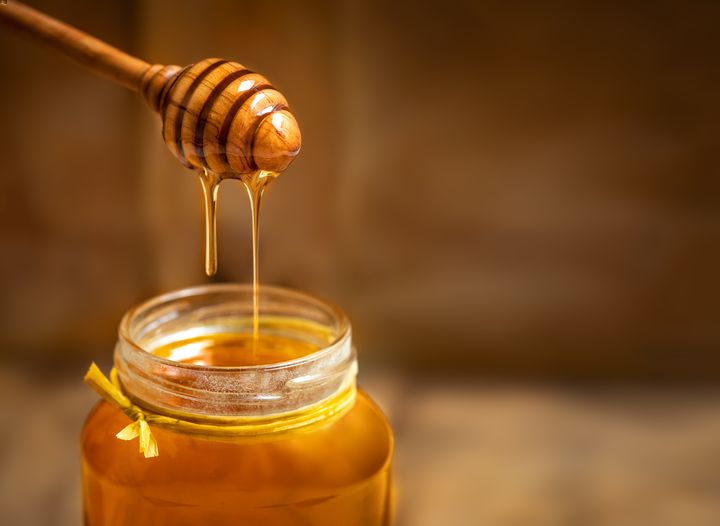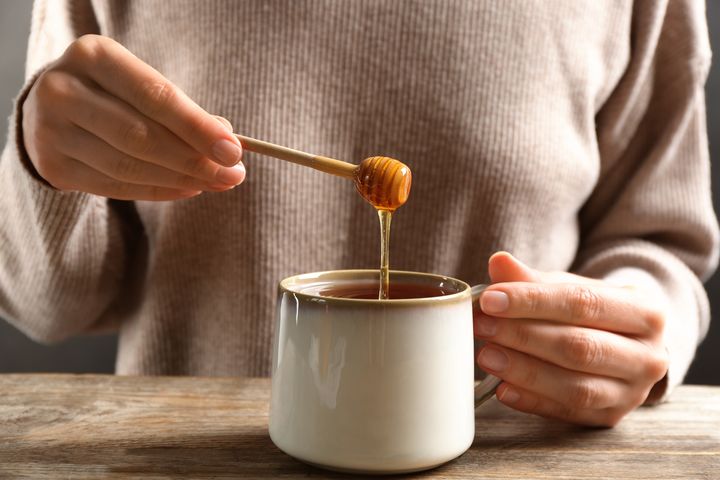Honey

What is Raw Honey?
Honey (feng mi, 蜂蜜) is a sweet, natural fluid that is produced by bees and derived from the nectar of flowers. Natural Raw Honey is actually sweeter than sugar, and it has a distinctive flavor that some people prefer as compared to other sweeteners. However, not all honey has the same flavor. The flavor and color of honey is determined largely by the types of flowers from which the nectar is gathered.
For thousands of years, Raw Honey has been prescribed for illnesses and injuries due to its antibacterial properties. As Raw Honey contains high sugar and low moisture content, liquid honey does not spoil easily. In fact, it can actually kill bacteria and airborne yeasts that it comes in contact with. For example, ancient Egyptians made use of Raw Honey to treat sores and soldiers in the trenches by applying it to their wounds during World War 1.
Other than its medicinal usage, Raw Honey is also popular worldwide for its sweetness and depth of flavor. It is thus used in many foods and recipes today.
In Traditional Chinese Medicine (TCM), Raw Honey falls under the category of ‘Laxative herbs that drain downwards”. This herb is rich in oils, and can lubricate intestines to help remove stools from the body.
Neutral in nature, Raw Honey does not affect the yin-yang balance in the body. Sweet in taste, Raw Honey tends to slow down acute reactions and detoxify the body. It also has a tonic effect on the human body because it can replenish qi and blood. In particular, Raw Honey targets the Stomach, the Large Intestine and the Lung.

Functions and Benefits of Raw Honey
Traditional Chinese Medicine (TCM) shows that the health benefits of Honey include:
Firstly, Raw Honey can tonify the Spleen and Stomach to tackle Deficiency and spasm pain in these two meridians. Hence, this herb is often used to relieve fatigue and poor appetite caused by Spleen or Stomach Deficiency.
Secondly, Raw Honey can be used to relieve symptoms caused by Lung Deficiency. For example, it is indicated for chronic cough, shortness of breath, fatigue and dry cough. It can also be used to take care of your throat health and vocal cords.
Thirdly, Raw Honey is used to relieve constipation caused by Dryness in the Intestines. The herb can promote the movement of stools through the Intestines through tonifying qi and moistening the Intestines.
Other than the above Raw Honey benefits, modern studies have also found that Raw Honey is a great source of energy. As it contains glucose, a natural sugar, it is able to provide energy and nourish the vital organs in the body. Also, Raw Honey can boost the immune system and improve conditions related to infections, such as chronic acid reflux and Gastroesophageal reflux disease (GERD). Raw Honey may also bring anti-inflammatory and anti-tumor benefits to the human body.
Raw Honey is also famous for its anti-aging and skin-repairing benefits. Afterall, Raw Honey is the secret behind why a Queen Bee can live 20 times longer than a normal bee. This herb can encourage collagen production and regenerate skin tissue to promote skin repair and wound healing.
When it comes to blood sugar management, Raw Honey may also increase levels of adiponectin, a hormone that reduces inflammation and improves blood sugar regulation. Also, other benefits of Honey include helping to prevent heart disease by lowering blood pressure, improving blood fat levels, regulating heartbeat and improving the Heart’s functions.
How to Use Raw Honey
Raw Honey is widely available at supermarkets, organic health food stores, Asian markets, herbal shops, and various other locations. It can be taken raw or as an infusion, pill, powder or extract, either alone or with other items.
Honey can be consumed alone, mixed with water, or added to herbal tea, other dishes and beverages.
To check if the honey that you purchased is authentic, you can:
- Drop a small amount of honey on your thumb. Pure honey will stay intact.
- Add one tablespoon of honey into a glass of water. If it dissolves, it’s artificial.
- Real honey is flammable. Dip a match into honey and try lighting it!
- When buying honey, read the label of ingredients to see whether there is glucose or corn syrup.
- Genuine honey tastes like flowers or herbs, instead of being full-on sweet.
- Real honey will crystallise when refrigerated for a long time.

Cautions and Side Effects of Raw Honey
Raw Honey is considered very safe for consumption. However, due to its laxative properties, individuals who are experiencing loose stools or diarrhea should avoid consuming Raw Honey.
Individuals who are experiencing Dampness obstruction and Phlegm Stagnation should also use Raw Honey with caution.
Also, Raw Honey may be potentially dangerous for infants due to the possibility of botulinum spores, which can survive in Raw Honey and affect the child’s digestive system. Though such cases are very rare, it is best safe for children under the age of one to avoid Raw Honey.
Summary
Here is a summary for Raw Honey:
- Herb name (Chinese): 蜂蜜
- Herb name (Pin Yin): fēng mì
- Herb name (English): Honey
- Herb name (Botanical): Mel
- Origin of species: Apis cerana Fabricus; Apis mellifera Linnaeus
- Part(s) of herb used: Honey
- Geo-specific habitat(s): Many parts of the world
- Taste(s) & Properties: Sweet; Neutral; Administrates the Lung, Spleen and Large Intestine Meridians
- Actions: Nourishes bodily systems to ease pain from stomach flu or related gastrointestinal ailments; Relieves chronic and dry coughs, and aid in relieving constipation; Helps to neutralise the toxic compounds in aconite species; Eases inflammatory conditions such as sores and scalds
References
Cianciosi, D., Forbes-Hernández, T. Y., Afrin, S., Gasparrini, M., Reboredo-Rodriguez, P., Manna, P. P., … & Battino, M. (2018). Phenolic compounds in honey and their associated health benefits: A review. Molecules, 23(9), 2322. [Accessed on 25th September 2022]
Cortés, M. E., Vigil, P., & Montenegro, G. (2011). The medicinal value of honey: a review on its benefits to human health, with a special focus on its effects on glycemic regulation. Ciencia e investigación agraria: revista latinoamericana de ciencias de la agricultura, 38(2), 303-317.[Accessed on 25th September 2022]
Kumar, K. S., Bhowmik, D., Biswajit, C., & Chandira, M. R. (2010). Medicinal uses and health benefits of honey: an overview. J Chem Pharm Res, 2(1), 385-395.[Accessed on 25th September 2022]
Pasupuleti, V. R., Sammugam, L., Ramesh, N., & Gan, S. H. (2017). Honey, propolis, and royal jelly: a comprehensive review of their biological actions and health benefits. Oxidative medicine and cellular longevity, 2017.[Accessed on 25th September 2022]
Share this article on
